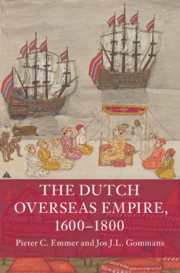(image source: CUP)
On the book:
How did the Dutch Empire compare with other imperial enterprises? And how was it experienced by the indigenous peoples who became part of this colonial power? At the start of the seventeenth century, the Dutch Republic emerged as the centre of a global empire that stretched along the edges of continents and connected societies surrounding the Atlantic and Indian Oceans. In the Dutch Empire, ideas of religious tolerance and scientific curiosity went hand in hand with severe political and economic exploitation of the local populations through violence, monopoly and slavery. This pioneering history of the early modern Dutch Empire, over two centuries, for the first time provides a comparative and indigenous perspective on Dutch overseas expansion. Apart from discussing the impact of the Empire on the economy and society at home in the Dutch Republic, it also offers a fascinating window into the contemporary societies of Asia, Africa and the Americas and, through their interactions, on processes of early modern globalisation.
On the authors:
Pieter C. Emmer is Professor Emeritus at Leiden University. He is the author of The Dutch in the Atlantic Economy, 1580-1880 (1998), The Dutch Slave Trade, 1500-1850 (2006) and is co-editor of The Encyclopedia of Migration and Minorities in Europe (2011) and Who Abolished Slavery? (2010). Jos J. L. Gommans is Professor of Colonial and Global History at Leiden University. He is the author of The Rise of the Indo-Afghan Empire, 1710-1780, (1999, 3rd edition 2018), Mughal Warfare: Indian Frontiers and High Roads to Empire (2002), The Indian Frontier: Horse and Warband in the Making of Empires (2018), The Unseen World: The Netherlands and India from 1550 (2018) and co-editor of Exploring the Dutch Empire; Agents, Networks and Institution, 1600-2000 (2005).
(source: CUP)


No comments:
Post a Comment